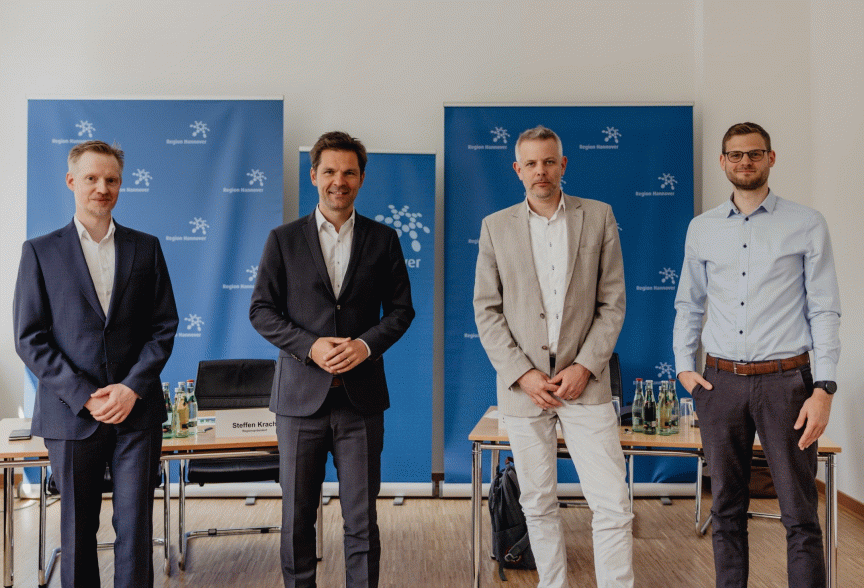Hannover Region promotes sustainable projects by companies
 Hanover Region
Hanover Region Hanover Region. Small and medium-sized companies are facing growing challenges. International supply chains are repeatedly interrupted, while at the same time rising energy costs are causing significantly higher costs.
At the same time, society is facing the challenge of climate change, which will have an impact on all citizens. Using resources efficiently is one of the key challenges of the future.
This is where the Hannover Region's Economic and Employment Promotion Agency comes in and has launched the "Hannover Region Green Economy" funding guideline . Companies from the Hannover Region can apply for funding of up to 10,000 for their sustainability projects.
 © AdobeStock/Stockpics
© AdobeStock/Stockpics The Hannover Region Green Economy ("HRGE") guideline of the Hannover Region Economic Development Agency therefore aims to be an important building block in supporting companies in the region in terms of climate protection and resource efficiency. The following objectives represent the specific focal points:
- Establishing innovations for more sustainable products and processes across the board
- Secure and create high-quality and competitive jobs
- protect the environment and thus prosperity within the Hannover Region
- strengthen the Hannover Region as a location for sustainable production processes
The "Hannover Region Green Economy" guideline is financed exclusively by the Hannover Region. The funding period lasts three years, with a total of 500,000 euros in funding available . Funding is available for projects that meet the United Nations' sustainability goals.
The United Nations Sustainable Development Goals define a general and global sustainability agenda consisting of 17 aspects. The individual goals represent a clearly defined framework for action that gives equal consideration to all dimensions of sustainability. The goals serve as overarching guidelines for "promoting sustainable peace and prosperity and protecting the planet".
The Hannover Region Green Economy guideline supports development projects that initiate future product generations with lower resource and energy requirements. Three examples:
- The use of plastics in additive manufacturing leads to a reduction in the carbon footprint of consumer goods (UN Sustainable Development Goal No. 12).
- The integration of artificial intelligence enables the automated analysis and adaptation of production processes so that the amount of waste is reduced due to fewer rejects (sustainability goal no. 9).
- The use of robots ("cobots") that work together with humans facilitates ergonomically unhealthy working methods and thus reduces the risk of injury or illness (UN Sustainable Development Goal No. 3).
Press contact
Christoph Borschel
Press spokesman - Tel. 0511 616- 22260 - Mobile 0162 366 15 47 - E-Mail christoph.borschel@region-hannover.de
